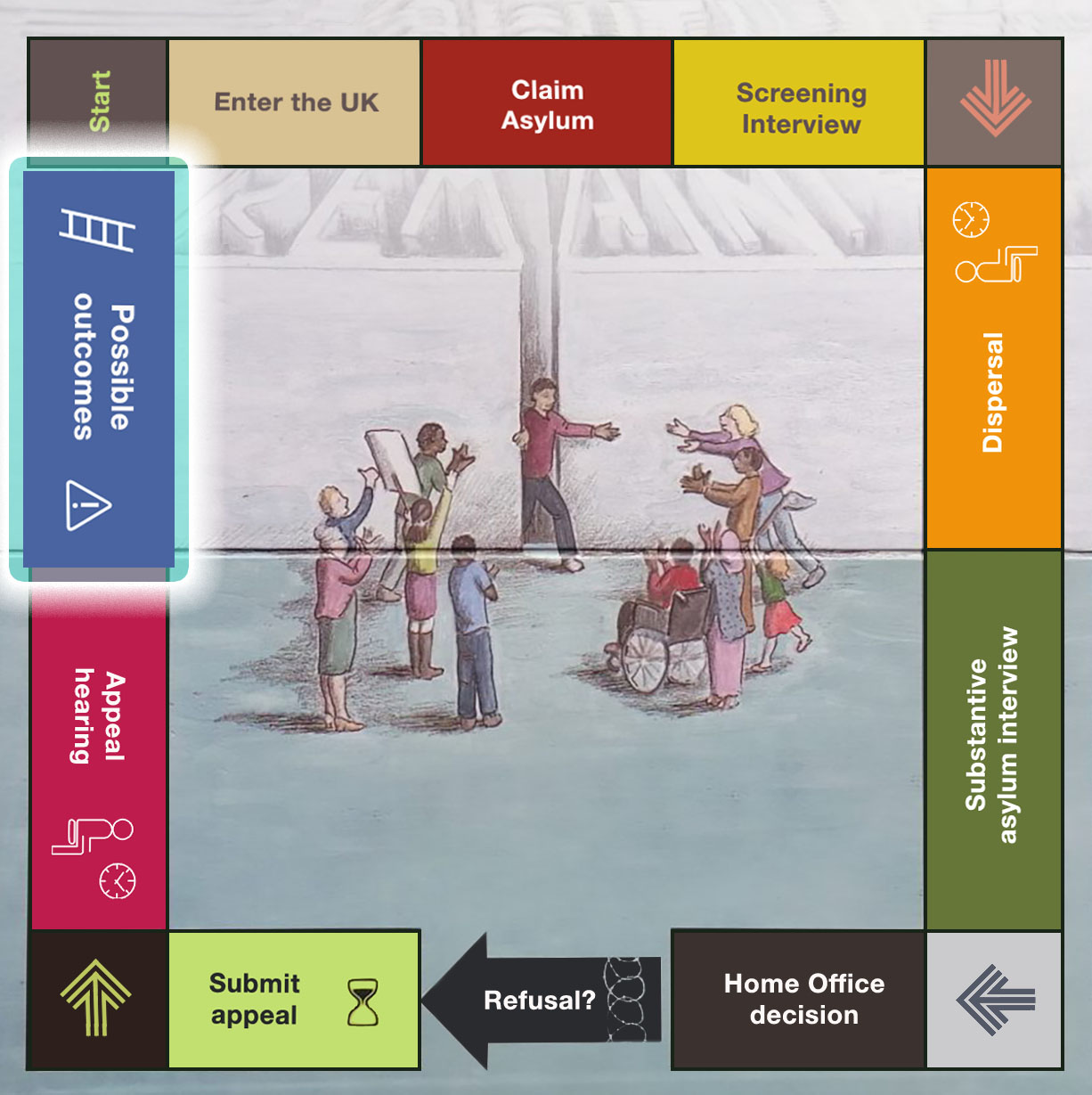Possible outcomes after appeal

ⓘ Information card
The judge does not usually decide whether or not your appeal has been allowed (successful) or dismissed (unsuccessful) at the hearing itself.
You will be informed of the outcome of your case in writing after some weeks or, because of delays, even months. The judge may say in the hearing when you can expect to receive the decision.
Positive decision
If you receive a positive decision in your case, the Home Office may appeal the positive decision. If it does not appeal, or appeals and loses, the Home Office should reverse its decision and take the necessary next steps (such as granting you Refugee Status).
If you are granted Refugee Status or Humanitarian Protection (see the Asylum Decision page of the Right to Remain Toolkit), you will have the right to work, claim benefits, access mainstream housing, and the possibility of applying for family reunion. Your asylum support will generally be stopped within 28 days of you being granted status.
Negative decision
If your case is refused (“dismissed”), you may be able to appeal that decision at the Upper Tribunal. This is difficult to do without a lawyer, and many people find that their lawyer will no longer represent after an appeal is dismissed. Read more in the Upper Tribunal page of the Right to Remain Toolkit.
You may have other legal options available to you, such as a fresh claim. See the problem cards below, and read the Right to Remain Toolkit section on Fresh Claims for more information.
“Appeal Rights Exhausted”
If you cannot apply for permission to appeal to the Upper Tribunal (within the time limit of 14 days), or you apply and permission is refused, or permission is granted but then your case is again dismissed, you become what the Home Office calls “Appeal Rights Exhausted”. You are also considered to be Appeal Rights Exhausted if you do not manage to appeal to the First-Tier Tribunal, or did not have the right to do so in the UK. You can read our “Appeal Rights Exhausted” Toolkit page to find out more.
Asylum Support stopped
When the Home Office considers you to be “Appeal Rights Exhausted”, it will stop your financial support and you will be told to leave your asylum accommodation. You may be eligible for ‘Section 4’ support. Read our Toolkit page on Asylum Support to find out more.
Risk of detention
The Home Office has the power to detain people at any point in the asylum process, but it is most likely to happen either at the start of the process (for example, at the Screening Interview), or when you are “Appeal Rights Exhausted”. You could be detained at a regular reporting appointment at the Home Office, or if there is an immigration raid on where you are staying, or if you encounter immigration officials in another way. See the problem card below and read the Detention section of the Right to Remain Toolkit for more information.
Risk of removal from the UK
When the Home Office considers you to be “Appeal Rights Exhausted”, they may attempt to remove you from the UK (this may happen very suddenly, or after some time). Read the problem card below and the Right to Remain Toolkit section on Removal and Deportation.
Now read the problem cards below. Discuss with a friend (or have a think if you’re doing this alone) what you might be able to do in this situation. When you have finished, click to reveal a suggested action.
⚠️ Problem card
Your appeal is dismissed and the Home Office now considers you “appeal rights exhausted”. Your asylum support allowance is about to stop and you are going to be evicted (made to leave) your asylum accommodation.
⚠️ Problem card
Your appeal is dismissed and the Home Office now considers you “appeal rights exhausted”. They may try to remove you from the UK.
⚠️ Problem card
Your appeal is dismissed and the Home Office now considers you “appeal rights exhausted”. You are at risk of being detained.
